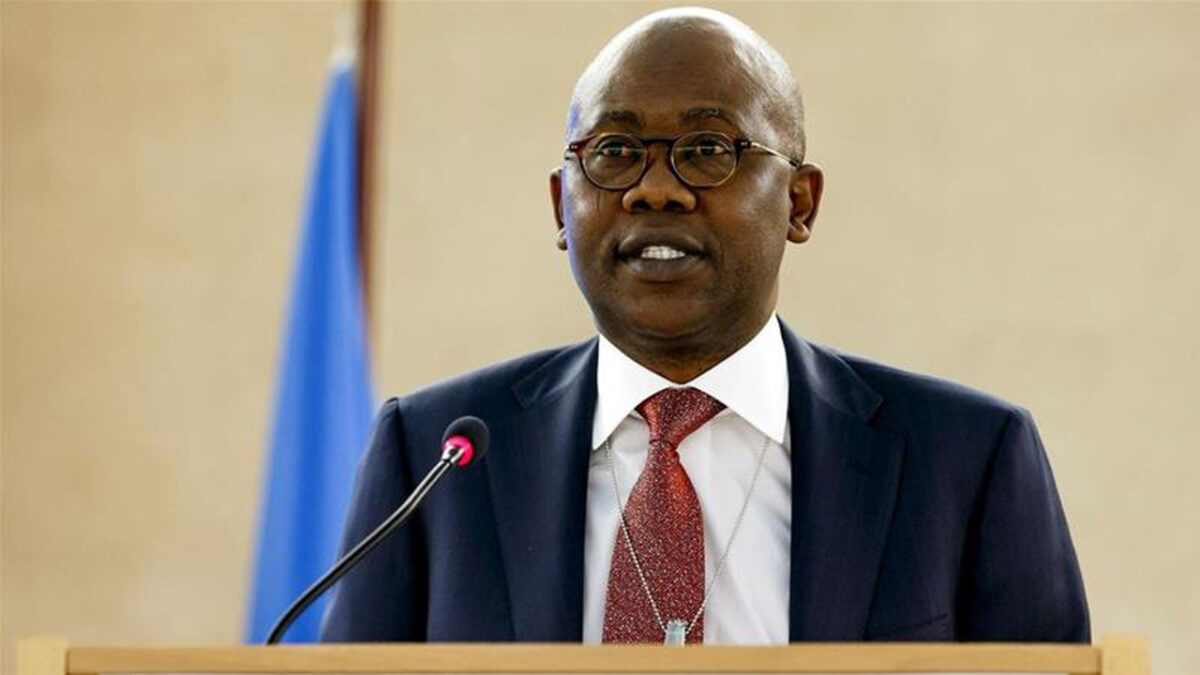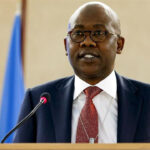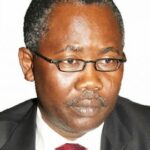The recent judgement of the Federal Capital Territory (FCT) High Court which cleared a former Attorney-General of the Federation and Minister of Justice, Mohammed Bello Adoke, a Senior Advocate of Nigeria (SAN) in the OPL 245 allegations, has created fresh issues that may impact on the seeming intractable controversy in the country.
The trial judge’s demolition of the prosecution’s case, which failed to establish any wrongdoing against the defendants, has raised more issues on the challenges and inadequacies of evidence and the criminal justice system after several reforms.
The judge also raised the issue of delayed prosecution, which in the instant case, lasted for four years, with the usual amendment of charges without yielding the expected conviction and sentence of the defendants.
Experts have consistently maintained that the anti-corruption and law enforcement agencies must present watertight evidence before the court to aid the expeditious conclusion of cases.
The OPL 245 has its roots in 1998 over the Federal Government of Nigeria’s award to Shell and ENI, Malabu Oil and Gas and others, and the revocation of the contract for the oil bloc deal, which went sour, but the judgement of the court appeared to have settled some core issues.
Six others in the controversial sale and alleged bribery scandal are Aliyu Abubakar, Rasky Gbinigie, Malabu Oil and Gas Limited, Nigeria AGIP Exploration, Shell Nigeria Ultra Deep Limited, Shell Nigeria Exploration Production Company Ltd
In the judgement on March 28, Justice Abubakar Kutigi dismissed the charges of fraud, bribery and conspiracy filed by the Economic and Financial Crimes Commission (EFCC) on the no-case submission made by Adoke.
Justice Kutigi, while discharging and acquitting the former minister, said the EFCC failed to prove its charges of fraud, bribery and money laundering, and ruled that the defendant had no case to answer.
The judge said the allegation of illegal tax waivers granted to Shell and Eni was not corroborated by the Federal Inland Revenue Service (FIRS) or any authority.
On the alleged N300 million bribe said to have been given to Adoke by Aliyu Abubakar, the court ruled that the EFCC did not provide the necessary evidence to prove its case.
Adoke also filed a no-case-submission in a similar matter the court is yet to decide.
Malabu and all the defendants had, through their lawyers, filed a no-case submission, questioning whether, in regard to the evidence of the prosecution witnesses and the facts elicited from the cross examination, the prosecution has made out a case warranting them to enter a defence.
The defendants further contended that having regard to the facts and circumstances in the case and the provisions of sections 302, 303 and 357 of the Administration of Criminal Justice Act, 2015, whether the prosecution has discharged the evidential burden of proof to warrant them to enter a defence in the case.
Defence lawyers in the matter are Kanu Agabi, Paul Erokoro and Solomon Umoh, Mike Ozekhome, Wole Olanipekun, Ifedayo Adedipe and A.J. Musa, Reuben Atabo, Joe Gadzama and Chukwuma Ikwuazom, Oluseye Opasanya, all Senior Advocates of Nigeria, while Sylvester Tahir (SAN) appeared for the EFCC.
Background to the Malabu controversy
It could be recalled that OPL 245 was awarded to Malabu Oil & Gas Ltd in 1998 by the military government of Gen Sani Abacha but later revoked by the administration of President Olusegun Obasanjo in 2001 after the company introduced Shell/Eni into the exploration in a $1.1 billion deal, following which they went to court to challenge the action.
In 2006, the administration of President Obasanjo opted for an out-of-court settlement and returned OPL 245 to Malabu 100 per cent with a payment of $1.1 billion and the matter was inherited by President Goodluck Jonathan, who directed Adoke to resolve it in 2010.
Although the Jonathan administration opted to sustain the Obasanjo out-of-court-settlement, which was in line with a consent judgement of an Abuja Federal High Court on November 30, 2006, the Muhammadu Buhari administration attempted to recoup the $1.1 billion Shell/ENI and Malabu deal for the OPL 245 by alleging some corrupt acts had transpired.
In this amended 40-count charges, the EFCC accused the defendants of conspiring to evade taxes accruing to the federal government in disobedience to a court order on the Companies Income Tax as contained in the OPL 245 Resolution Agreement, converted funds domiciled with Keystone Bank and First Bank of Nigeria after allegedly using a forged board resolution to open same.
The EFCC further alleged that Abubakar bribed Adoke with N300 million in the exercise of his official functions, and the defendants also
The charges were brought under sections 97, 123(c), 116 and 363 of the Penal Code.
Prosecution gaps and reforms
In his judgement, Justice Kutigi said the prosecution failed to link the ingredients and the facts to establish a prima facie case to warrant the defendant’s entering a defence, especially as the prosecution witness 4, Chief Oyewole Fasawe of Pecos Energy Ltd did not give any relevant evidence relating to the alleged forged resolution reallocating the company’s shares to Joseph Amaran.
“The ingredients of the offence under section 366. PW4, Chief Fasawe of Pecos Energy did not give any relevant evidence relating to this resolution,” he said.
“Again, a court of law cannot hold that a prima facie case has been established in such very unclear circumstances compromised by a dearth of evidence of any kind, even if minimal. I hold that a prima facie case has not been made out on count 38.
“The court found that the allegation of forged resolution to open a domiciliary account in First Bank and Keystone Bank was not proved in evidence.
“While the action of prosecuting counsel in conceding that they have not made a case against Ist (Adoke), 2nd (Abubakar), 4th (Malabu), 5th (Agip), 6th (Shell Ultra), 7th (Shell Exploration) defendants is to be commended, it cannot be right or fair that it took the prosecution nearly four years to realise that it had no case against 1st, 2nd, 4th, 5th, 6th and 7th defendants.
“I incline to the view that the way this case was presented here by the prosecution against the defendants, both in terms of the formulation of a large and unwieldy 40-count charges and the dearth in the quality of evidence presented, appears to seek to turn upside down, the cherished constitutional presumption of innocence in favour of the defendants by tending to suppose that it is for the defendants to prove their innocence rather than for the prosecution to present at this stage, a prima facie case requiring the defendants to put up a response,” he noted.
The judge said he could not determine issues on speculations no matter how close what it relies on may seem to the facts, as that is not an aspect of inference, which he defined as “a reasonable deduction from facts whereas speculation is a mere variant of imaginative guess, which, even when it appears plausible, should never be allowed by a court of law to fill any hiatus in the evidence before it.’ “See Overseas Construction Co. Ltd V Creek Enterprises Ltd (1983) 16 NSCC.”
He added, “Where the evidence is weak, tenuous or unreliable, then a prosecutor must have the conviction to act on it and the courage to stand by it, notwithstanding the inconvenience that may likely arise in taking such a stand.
“A futile trial predicated on frivolous charges does a lot of incalculable damage to the criminal justice system in terms of time and resources spent, which could have been better utilised in more productive causes.”
The latest dismissal of the prolonged Malabu trial is not the first time the matter suffered the same setback in the past. For instance, on March 17, 2017, a Federal High Court in Abuja, presided by Justice John Tsoho, vacated the order of interim forfeiture against the EFCC over an irregular ex parte application.
The EFCC had claimed that OPL 245 is subject of illegal activities for which it had filed criminal charges against Adoke, former petroleum minister, Dan Etete and businessman, Aliyu Abubakar, over their alleged role in the diversion of $1.1 billion from the Malabu deal. Others are: Malabu Oil and Gas Limited, Rocky Top Resources Limited, Imperial Union Limited, Novel Properties and Development Company Limited, Group Construction Limited and Megatech Engineering Limited.
Similarly, in June 2022, the Commercial Court of England and Wales in London had ruled that there was no fraud in the payment of the $1.7 billion signature bonus made to JP Morgan Chase Bank over the oil bloc deal.
There is need for criminal justice reforms – Lawyers
Legal analysts have called for criminal justice reforms taken as a way of addressing some of the comments raised by the court in the Malabu judgement.
A professor of law at the Nile University, Abuja, Professor Shehu Abdullahi Zuru (SAN), said that in the American justice system, a district attorney won’t file a criminal action in court unless they were convinced that they could secure a conviction at a trial based on impeccable facts presented by the police.
“Unless convinced, he or she will not gamble with taxpayers’ money to proceed with prosecution.
“However, in most African countries, because justice is often ambushed by powerful political interests, cases are most times activated in pursuit of vendetta.
“Unless these things are seen for what they are and holistic reforms are carried out, such investigative agencies will find it difficult to post remarkable results in discharging their mandate,” he said.
Similarly, a former Attorney-General and Commissioner for Justice in Ekiti State, Dayo Akinlaja (SAN), said there should be reforms that would only permit prosecution when all the facts are available and watertight.
“It is a sheer persecution to arrest people and be foraging for evidence to support the charge.
“That is also what it means to arraign a person in a criminal case without the requisite means of proving guilt.
“We do not need anything of such in our system, and whatever can bring an end to it has my utmost support,” he said.
The Attorney-General of the Federation and Minister of Justice, Lateef Fagbemi (SAN) and the president of the Nigerian Bar Association (NBA), Yakubu Maikyau (SAN), on Thursday announced an upcoming summit to review how to make Nigeria’s justice system more efficient.

 Join Daily Trust WhatsApp Community For Quick Access To News and Happenings Around You.
Join Daily Trust WhatsApp Community For Quick Access To News and Happenings Around You.
